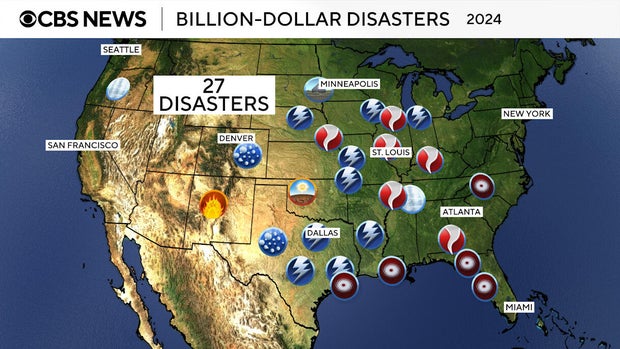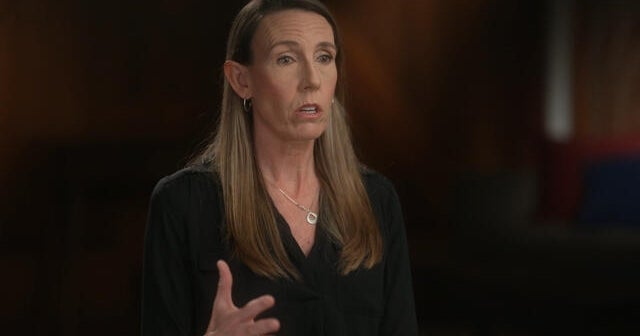NOAA announced Thursday that it is decommissioning several databases, including its widely reported annual compilation of billion-dollar weather and climate disasters.
The announcement was made on NOAA's website under "notice of change," which said it would no longer be updated due to "evolving priorities, statutory mandates, and staffing changes." The move was first reported by CNN.
The database is a popular tool, both for the government as well as the insurance industry, and media organizations often use it for reporting on the economic costs of extreme weather.
According to a current NOAA employee, who spoke on condition of anonymity out of fear of losing their job, part of the reason the billion-dollar database is being decommissioned is because it is "not core" to NOAA's mission, since its focus is on economics and an analysis of various datasets. Additionally, the lead researcher of the database resigned last month by taking a separation incentive package.
More than 2,200 NOAA employees have been let go under the Trump administration, and the White House budget proposal would cut NOAA's funding by 30%.
 According to NOAA's database, 2024 saw 27 extreme weather or climate-related disasters with damage of at least $1 billion each.
NOAA data/CBS News
According to NOAA's database, 2024 saw 27 extreme weather or climate-related disasters with damage of at least $1 billion each.
NOAA data/CBS News
Criticism had been mounting against the billion-dollar database over the years, driven by Roger Pielke Jr., a senior fellow at the American Enterprise Institute and faculty at the University of Colorado-Boulder. Pielke argued it needs better metadata, review and documentation. He published a paper in the journal Nature last year about the database, saying it failed to meet NOAA's "criteria of procedure and substance" based on the agency's "information quality and scientific integrity policies."
In a phone interview with CBS News, Pielke said, "I'm a huge fan of NOAA and the National Weather Service, they play a huge public service role, and I'm not happy with the sledgehammer that is being taken to the agency."
He said having climatologists in charge of the data was problematic and resulted in some quality-control issues that could be addressed by proper economists. He also said the current dataset isn't fixable at NOAA, but that it would be very important for another federal agency to take disaster losses seriously and track the data.
Several members of the House Committee on Science, Space, and Technology sent a letter to then-NOAA Administrator Dr. Rick Spinrad last fall sharing concerns that the database was misleading.
"The lack of updated, comprehensive data in these models raises considerable concern given that these reports have been cited by both Congress and the President as the justification for different federal government actions concerning climate change," they wrote, repeatedly citing Pielke's research in the letter.
Spinrad says he doesn't necessarily disagree with Pielke's arguments, but believes it should be a collaboration between an office like the Bureau of Economic Analysis and NOAA.
"The fact of the matter is a large component of billion-dollar losses are based on environmental observations," he told CBS News in a phone interview. "How do you separate out the differences between a liquid natural gas facility exploding and a tornado hitting a town? ... What constitutes the physical delineations that cause a problem? You need an environmental component and I'd feel better with a NOAA scientist doing that in conjunction with an economist."
According to Spinrad, critics have also taken issue with how much of the damage to attribute to climate change as compared to other factors such as development and population growth in urban areas.
Spinrad said he previously suggested that the report should be broken into two parts: the data and the interpretation of the causes.
Both Pielke and Spinrad agree that good data needs to be collected and published.
"Yanking down the database obfuscates the discussion on natural disasters, and for this to go away and not be part of the dialogue is a big problem. If you talk to the reinsurance industry and retail, so many sectors rely on this database," Spinrad said.
ClimateWatch: Climate Change News & Features More More Tracy J. Wholf







